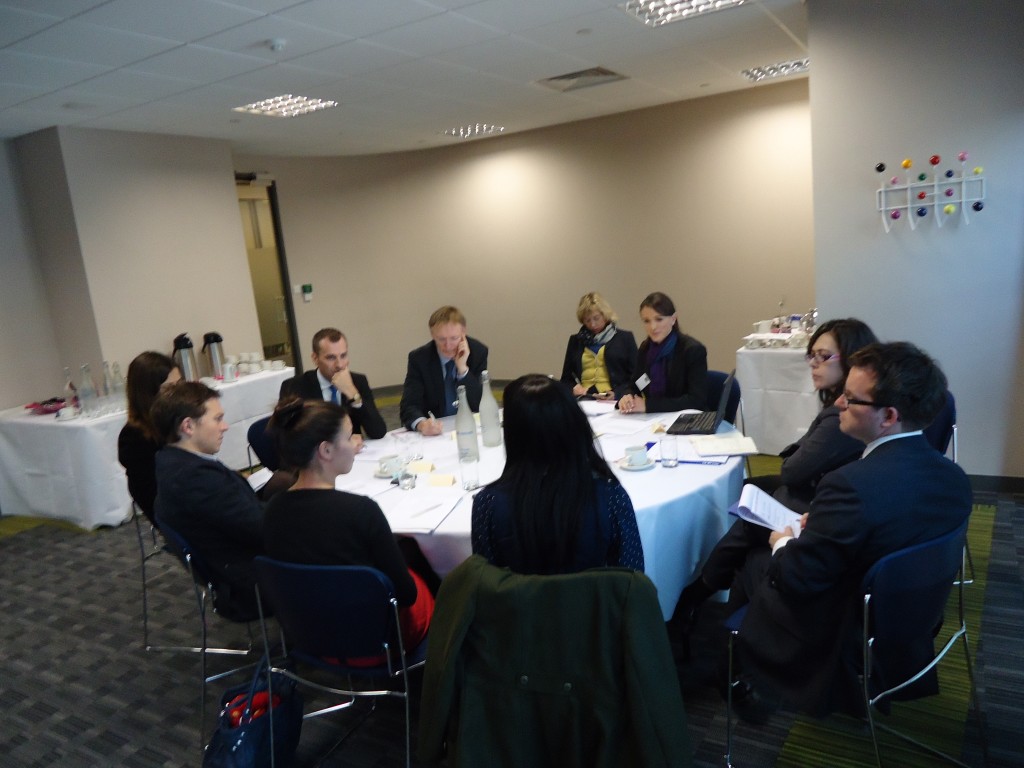Just before the Christmas break, I attended a round table discussion with the EU Commissioner for the Environment, Janez Potocnik. His visit to London and the roundtable discussion were coordinated by the Green Alliance and the CBI as part of a larger event on Resource Management. The discussion looked at three themes: resource efficiency, the environmental impacts of business and policy interventions.
As companies and organisations start to get a grip on their emissions another aspect of environmental impact is coming in to play – resource efficiency. At this moment in time as the global economy is still recovering from the recession, now is a better time than any for businesses to re-evaluate their inputs. Some facts shared by the Commissioner:
- We use 16 tonnes of resources per person, yet 6 tonnes of that goes to landfill
- 87% of EU businesses expect the cost of their inputs to increase
Commissioner Potocnik asserts that competitive advantage remains with those companies that can do more with less. As the economy is working towards recovery, now is the perfect time for industry to tackle growth. Companies can take advantage of increased output costs to manage what they have better.
And he’s right. Take mobile phones for example.
The mobile phone industry is far from collapsing. However, mobile phone manufacturers (and many other electronic devices) depend on certain precious metals – Coltan in particular – to operate. 80% of the world’s known supply of Coltan lives in the Democratic Republic of the Congo. And millions of people have died because of the conflict which has become an issue for both domestic and international governments as Coltan joins the ‘blood diamond’ clan, a precious mined resource with a finite supply.
This conflict and limited supply of the earth metal has forced several manufacturers to rethink growth and resource management out of necessity. We have seen a rise in mobile phone and electronic recycling. This is because it’s better to manage electronic waste and not send it all to landfill, but also because it’s cost effective for companies to take parts of the device – including processed Coltan – to use in the manufacturing of new phones. This is a bit of a weak example because companies are still mining raw Coltan but it does show that resource scarcity is already coming in to play and if companies are proactive in evaluating their supply chain it help them grow sustainably, rather than just in the short term.
Commissioner Potocnik spoke candidly about EU policy and government subsidies. He explained that the issues aren’t just about resource efficiency, but effective policy interventions and smart subsidies. He pointed out that tax breaks for company cars in the EU is 50 billion Euros a year. That’s huge. For cars! The challenge now is how can governments develop innovative subsidies that help with sustainable market growth. And we’ll see a lot of this over the next year as 2012 brings the introduction of the Green Deal, and the Green Investment Bank.
As the Commissioner points out, with current growth rates in China, India and Brazil, we’ll soon see 2-3 billion people to move towards middle class consumption and I think most people can agree that this fact concedes that we can’t continue to consume resources at the rate we have in the past.
While this all may sound terribly depressing and doom and gloom there are still interesting and potentially game changing opportunities that could hopefully lead us to a low carbon economy that uses resources efficiently. One example is through sharing. Yes, sharing between businesses. It may sound like an oxymoron but it just might change the way some businesses operate. Why can’t more companies develop business models based on sharing? Or even share resources, knowledge and planning with other businesses in non-competitive markets?
Another area to be explored is innovation funded through private investment. The Commissioner pointed out that the EU has only 1/10th of the private investment in new technologies than that in America. Maybe this is another arena to be explored for future development.
Overall the discussion with Commissioner Potocnik was fascinating. While I could sit there and think of my own solutions to our world’s resource problems, the Commissioner is actually responsible for working across several different EU economies with the task of attempting to build a more sustainable Europe. And I find that to be both a daunting but also inspiring task.


The great news is that some brilliant minds are sitting down together to discuss strategies that may inform policy decisions! Well done!!